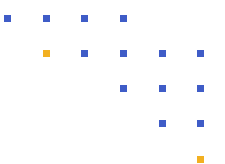Case Study - Weill Cornell Medicine
Kiteworks makes it easy for Weill Cornell Medicine students and staff to collaborate on large data sets with external researchers while protecting PHI.

Cornell University’s Weill Cornell Medicine (WCM), situated in the heart of New York City, operates one of the premier medical research institutions in the United States. Comprised of various research centers and institutions dedicated to a wide range of medical studies, WCM has built a reputation for excellence in numerous medical fields. WCM’s Office of Academic Computing (OAC) supports more than 5,000 computer users, over 100 servers, and numerous clinical, research, and administrative software applications.
Cornell’s research laboratories have been completely renovated in recent years, increasing the laboratory space by more than 25% and enabling WCM medical staff and researchers to conduct more extensive research. In addition to conducting this world-class research, WCM operates one of the premier medical universities in the United States. In parallel, WCM’s OAC creates innovative computer systems and applications for specific clinical and research projects, including cutting-edge work in genetics and structural biology.
Addressing the Unique Problems of the Research Community
WCM faculty members have a long history of medical research in a variety of fields. Typically, their work entails collaborating with research partners around the globe. Of course, collaboration is not confined to just faculty and staff. Students and researchers must work with classmates and colleagues to complete assignments and lab projects.
“Kiteworks was exactly what we needed. Not only can internal users collaborate quickly and easily, but external users can use the solution as well. The issues we dealt with in the past have been completely eliminated.”
– Steven M. Erde, Ph.D., M.D., Senior Director and Chief Security Officer, Weill Cornell Medicine’s Office of Academic Computing
For example, researchers often work closely with one another to develop grant proposals, compare results, and prepare presentations. While technology has allowed researchers to share and compare data more efficiently, the sheer size of data sets and other content can often pose problems for research partners.
Steven M. Erde, Ph.D., M.D., senior director and chief security officer at WCM’s OAC, recognized the challenges associated with sharing and collaborating on medical research with external recipients. “Researchers need to share a surprisingly large amount of data, and often do so via email, which can pose problems for individuals not operating on WCM servers,” he says. “It was important that we identify a solution that would allow for the efficient collaboration on research data with external parties, and would simultaneously permit those external parties to review, comment on, and return data back to WCM researchers.”

Case Study
Weill Cornell Medicine Improves Collaboration Among Researchers With Simple and Secure Data Sharing

Identifying Requirements for File Sharing
The OAC had previously implemented a file transfer protocol (FTP) solution that allowed users to share data with external parties using guest accounts. Unfortunately, the FTP solution proved to be far too complex for the average non-technical user. In an attempt to update WCM’s FTP solution, Erde sought to identify alternative solutions that were both effective and more user-friendly.
The WCM team wanted a web-based solution to minimize training and ensure ease of use. “The reason that so many people depend on email to share files is because everyone knows how to use it,” says Erde. “Therefore, one of our priorities for a new solution was making it easy for external users to collaborate with WCM personnel. We had to find a solution that wouldn’t require users to undergo extensive training on how to utilize the technology.”
Realizing Benefits From a New Solution
OAC finally settled on Kiteworks, as it offered an intuitive interface for both internal and external users. Erde also liked the fact that Kiteworks provides a web interface for users to send research and other data with a link to the file in lieu of an actual attachment, eliminating the concern of large file sizes, version control, and infected files. Instead, recipients simply click on the embedded link and the file is downloaded instantly and securely from the Kiteworks platform.
Since adopting Kiteworks and incorporating the solution into WCM research workflows, faculty, staff, students, and external research partners have reported improvements in their collaboration processes and overall productivity. Erde concludes, “Kiteworks was exactly what we needed. Not only can internal users exchange research quickly and easily, but external users can use the solution as well. The issues we dealt with in the past have been completely eliminated.”
Needs
- Provide secure file-sharing infrastructure that accommodates large data sets
- Deliver ease of use to facilitate solution adoption
Kiteworks Solution
- Secure file sharing for exchanging and collaborating on large, sensitive research data between internal students and staff and external partners
Business Impact
- Protect PII, PHI, and IP by sending a secure link to sensitive content rather than an attachment
- Increased efficiency from an intuitive interface for internal and external users
- Increased productivity due to improved collaboration
“We had to find a solution that wouldn’t require users to undergo extensive training on how to utilize the technology.”
– Steven M. Erde, Ph.D., M.D., Senior Director and Chief Security Officer, Weill Cornell Medicine’s Office of Academic Computing







